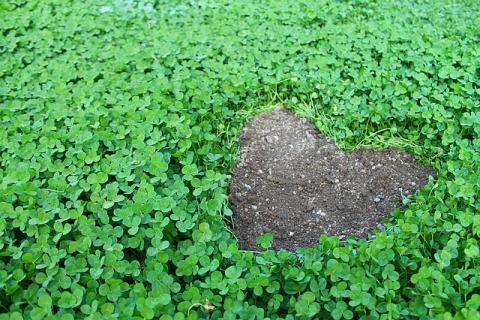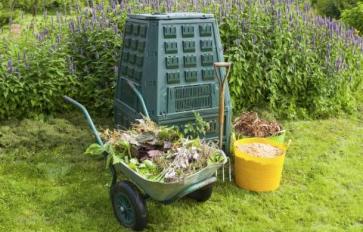
Cover cropping is a mainstream, sustainable practice that is good for the earth and good for your garden. Essentially, cover crops are planted in a certain area as place holders for another type of plant to be grown in the very same spot. There are many positive functions of cover cropping that are worth exploring. If you would like to learn a little more about this method and why it’s so great, read on for six reasons to cover crop your garden.
Reason 1: Soil Erosion Prevention
Cover cropping is excellent for helping with soil erosion, and for protecting your garden soil from washing or blowing away. Most cover crops have extensive root systems which can assist in anchoring the soil down.
Reason 2: Natural Soil Enhancement
“Green manure” is another name often used in regards to cover cropping, and it makes perfect sense. Planting certain cover crops can help naturally manage beneficial nutrients—such as nitrogen and the pH levels of your soil. In addition, cover crops boost the organic matter levels and prevent soil from compacting in your garden as well.
Reason 3: Natural Weed Control
Need a way to naturally combat weeds that may try to take over your garden? Cover crops can help! They can effortlessly and naturally aid in preventing most germinated weed-seeds from growing and producing more weeds.
Reason 4: Natural Pest Management
Cover crops can also lend a hand with natural pest control management. Sunn hemp is an excellent vegetable cover crop that has been used to manage nematodes and other pests.
Reason 5: Beneficial Insect Attraction
Along with pest control management, cover cropping can naturally help to attract beneficial insects in your garden as well. It also allures beneficial nematodes to keep the harmful ones under control.
Reason 6: Plant Diversity and Wild Life
Beyond the various reasons listed above, cover cropping is a natural way to increase the wildlife habitat as well as encourage plant diversity in your garden. Mustard is one example of a cover crop which attracts beneficial insects and increases plant species diversity in orchards and gardens.
It can be very simple to grow cover crops. Most of the time the process just involves picking your seeds of choice, throwing them over the soil, lightly raking them in, and then watering. They are usually easy to maintain and require very little maintenance. When choosing a cover crop, it is recommended that you decide based on your location and gardening needs or goals. There are many types of cover crops you can choose from—here’s a list of some of my favorites.
- Buckwheat
- Sunn Hemp
- Crimson Clover
- Hairy Vetch
- Sorghum-Sudangrass
- Winter Rye
- Winter Pea
- Field Mustard
Stay tuned for more organic home garden tips and ideas!








